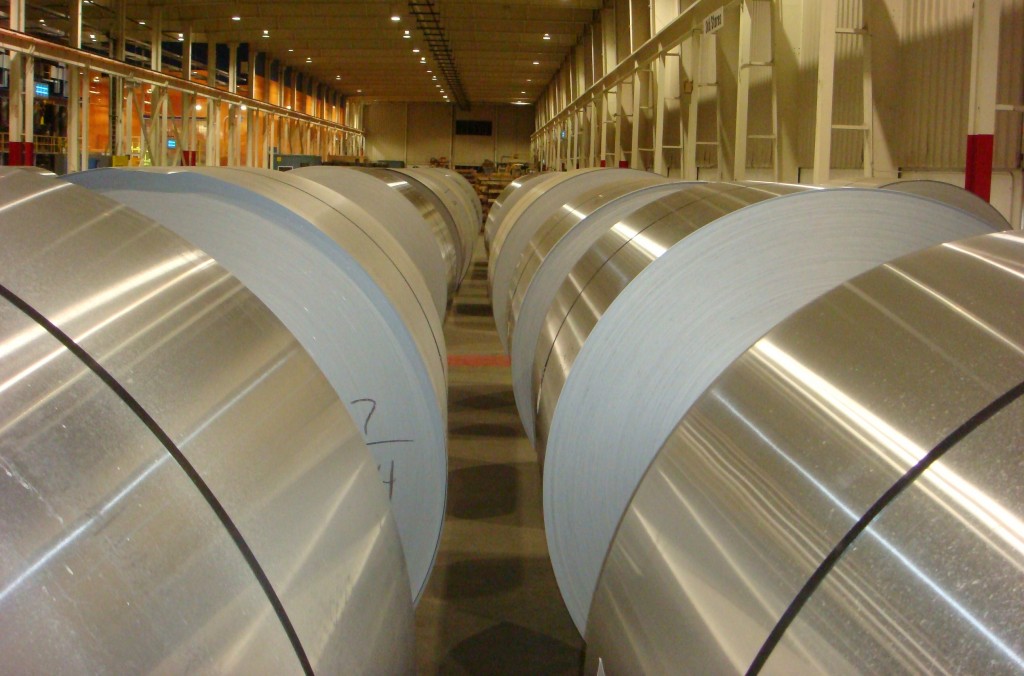
(Photo: Alcoa)
DALLAS Strong demand for lightweight aluminum in autos and airplanes is helping Alcoa Inc. cope with lingering weak metal prices.
The company said Monday that its second-quarter loss was wider than a year ago. But excluding costs for closing smelters and other restructuring and legal expenses, the results slightly beat Wall Street expectations.
The company stuck to its forecast of 7 per cent growth in global aluminum demand this year, led by a roughly 10 per cent increase for aerospace.
The shares rose 11 cents, or 1.4 per cent, to end regular trading at $7.92 before the quarterly results were released. In after-hours trading, they fell 4 cents.
RELATED: Aluminum manufacturer Alcoa posts $143M loss but revenue tops estimates
Aluminum prices skidded about 8 per cent during the April-through-June quarter, further hurting the aluminum mining and smelting end of Alcoa.
But other parts of Alcoas business the sale of aluminum sheets and parts such as fasteners are growing as carmakers and aircraft manufacturers use more aluminum for better fuel efficiency.
U.S. consumers who delayed car purchases during the recession bought more than 7.8 million vehicles from January through June, the auto industrys best first half since 2007. And Boeing and Airbus have backlogs of hundreds of aircraft from airlines desperate to upgrade to newer, more fuel-efficient planes.
Alcoa is closing two smelter lines in Canada and a smelter in Italy, but its expanding mills in Tennessee and Iowa that cater to the auto and aerospace industries.
Despite the boost from cars, planes and cost-cutting, Alcoa has been the worst-performing stock in the Dow Jones industrial average this year, down 9 per cent. And in May, Moodys Investors Service lowered the companys credit rating to junk status, citing continuing weak prices for aluminum.
Chairman and CEO Klaus Kleinfeld said Monday that the company was disappointed by the downgrade, which he said reflected Moodys view of the economy and aluminum prices rather than Alcoas strategy and performance.
We control what we can control, and we cant control the metal price volatility, he said on a conference call with analysts.
Alcoa has customers in many industries, making it a gauge of the economy. And as the first member of the Dow index to report quarterly results, its results draw extra attention from investors.
The New York-headquartered company reported a second-quarter loss of $119 million, or 11 cents per share. That compared with a loss of $2 million, or break-even on a per-share basis, a year earlier.
Excluding $195 million in restructuring and legal-expense items, Alcoa said it would have earned 7 cents per share, a penny more than analysts expected. Revenue fell 2 per cent to $5.85 billion, matching the forecast of analysts surveyed by FactSet.
Kleinfeld said the company turned in a remarkable operating performance in the face of falling metal prices by restructuring, curtailing, and closing facilities and (we) made progress addressing legacy legal issues.
Alcoa is negotiating with the U.S. Department of Justice and the Securities and Exchange Commission to settle claims that it paid millions in bribes to get Aluminum Bahrain BSC, or Alba, to overpay Alcoa for raw materials.
The company said it proposed to settle by paying the Justice Department $103 million, and it took a charge in that amount. But the company said there could be an additional possible charge of up to approximately $200 million to settle the DOJ matter.
Alcoa added that the SEC staff rejected a $60 million settlement offer. It said any payments to the government would be stretched over several years.




